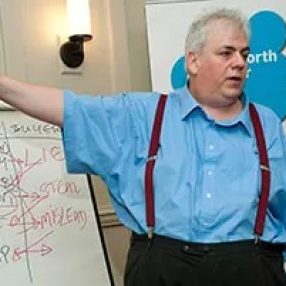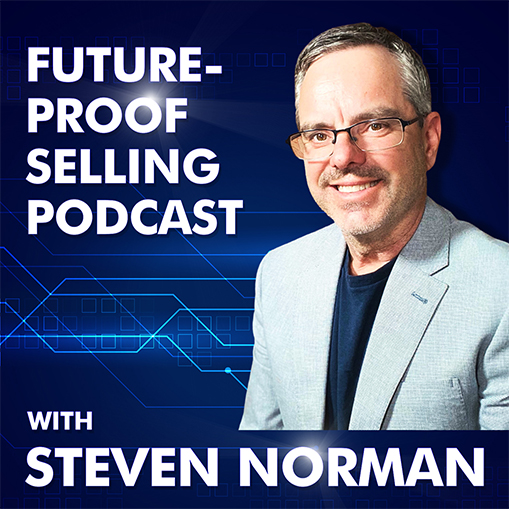
Why Mofu Sales Matters: Can it make or break your Career?
Recruitment and MoFu sales. Two of the most critical areas in B2B sales. Really enjoyed being interviewed by Channel Sales expert Marcus Cauchi for his podcast “The Inquisitor.” Marcus and I share a passion for sales recruitment. Attracting top sales talent, and effective sales hiring and management is crucial to our success as leaders.
How can leaders become the type of manager top salespeople want to work for?
I share some of the ups and downs of my career that ultimately shaped how I approached my work as a salesman, and as a sales and business leader.
Marcus and I also delve deep into the all important MoFu (middle of funnel) sales strategies with some real life examples and actual questions all salespeople should be asking their customers.
Always a pleasure speaking with Marcus. Enjoy the full podcast episode and/or transcripts of two excerpts below. We’d love your comments on this discussion.
Sales Recruiting Excerpt Transcript
Marcus – What’s your advice in terms of predictive hiring? And taking people through the process of establishing a good bench of candidates?
Steven – Sure. Let me tell you a short story. So, in my last sort of serious corporate job, so I was managing Targus, the laptop case manufacturer and accessory company across Asia-Pacific. And I had a couple hundred people maybe eighty or ninety of the people were salespeople. Okay? So…in a year, even running the team well, you’re going to have 15% turnover probably. You know, and in Asia, a lot of Asian countries where the market is very sort of fast, and moving all of the time. You could have 25% turnover even if you’re doing a decent job, right?
Marcus – Yep.
Steven – So you’ve got to expect, we’re going to hire 15.. say 10-20 people in a year. And I want to plan for that so, my first meeting of every week was with my HR Director. We met at 9 AM every Monday and we proactively worked on our bench. Our outside bench. We also had an inside bench, but we had headhunters on retainer and I spent definitely a few hours a week just interviewing bench, even if I didn’t have a specific role.
– Good.
– Right
– Really good.
Steven – So I would always have three or four or five warm candidates And I try and tune through that weekly meeting and through being in touch with the team. You sort of know where your sensitive areas might be. There might be some warning sign, you know, someone’s, you know, going… has talked to you or someone’s not preforming and you can sort of forecast maybe they’re on their way out and… I always want to have that bench ready. And then, you’ve got time to do it on your own terms possibly, maybe even if you meet someone really good, you’ll create a position for them.
Marcus – Absolutely
Steven – If you meet a superstar who jumps all the hurdles, from one of your key competitors, and he can come in and bring a bunch of business, or accounts, or a… You know, a country. Let’s make it happen, you know? Let’s try to fit it in the budget and try and get the upside.
Marcus – One thing that really frustrates me is that I hear all the time “Oh they need experience in our marketplace, they need experience in a type of product.” But, great salespeople don’t need experience in your market. And what fascinates me is this fixation with skills, experience, and historical results. All of which are lag indicators. He may have been good once But they don’t tell me whether he was lucky, carried, or burnt out. Or just happened to be at the right place at the right time.
Steven – You know, I agree. I don’t get it too Marcus, it’s sort of like an easy sell for the headhunters. And they’re just all in that same rut, aren’t they? Of “you need someone for,” okay in my case, let’s say we’re looking for someone selling to New South Wales government. Selling a SaaS solution for records management. The headhunter will go and try to find someone with that exact role in their history somewhere. And that will be an easy sell to the sales manager. But, like you’re indicating, and like I really believe, it’s really…who knows why they were successful in that last role. They might have had a low target, someone before them might’ve set up all of the deals and they just closed them. They might’ve had some tremendous product advantage. It’s a pretty risky proposition, so I think we really got to look at, okay, what are their innate characteristics? We want to be testing them. You know, we want to be looking at the specific role and the sort of strengths we’re looking for.
Marcus – What should you look for in terms of predictors of success?
Steven – It depends on the role, doesn’t it? You know, and… if you’re looking at a- account management role versus a hunting role, large accounts versus you know, more transactional accounts. It’s very different and we really need to nail down the job spec. And very few people are doing this, or their job spec’s five years old.
Marcus – It is “cut and paste”…is the favourite job description process.
Steven – Yeah, exactly. It just doesn’t produce good results, like we know around half of sales hires fail. It usually takes twelve to eighteen months to sort of realise that and take action on it. And there’s a tremendous cost to our business. So, the way most people are doing it, trying to cookie-cutter people in, cut and pasting JD’s just doesn’t work.
So what we have to have a much more structured approach. And, how do most interviews go Marcus? 99% of the interviews are very casual, unstructured interviews. Where the sales manager meets the candidate, even the poor salesperson is very capable of building rapport. Say “Oh Marcus, yeah I know the CIO in the department of roads in New South Wales, and I know this guy, I know this one and” Oh yeah do you? “Oh yeah, that’s great, you know I know them too” and You know before know it, they’re talking about different topics and comfortable and getting led by the nose.
And we’re not uncovering anything about that person’s real character or their real capabilities. So, I really recommend that we structure our interviews. Specifically around the JD and the things that we’re looking for. We dig into those, we look for examples. And, then I want to do independent testing as well. Because, it’s very hard to uncover in an hours discussion, what that person’s really like.
Excerpt 2 Transcript – Why MoFu Matters
Steven – Just a little structure I’d like to share, Marcus, with everyone that I think is useful. Because we’re talking about a lot of things here. There’s a lifetime of learning in the middle of the funnel. But if I could just simplify with like one sort of a structural framework that might help.
So, often we’re thinking we’re doing the right thing. We’re thinking maybe we’re going slowly and we’re working with the customer, and we’re asking the customer, “okay what’s the next step in your process?” And then, what’s the next step after that, and so forth. And this is one way to qualify.
I might ask salespeople to look at it a little bit differently. Don’t ask about the next step. Let’s talk about the end. Let’s talk and try to put a stake in the ground about when they’re expecting, and when they need to get business benefit from the solution. And trying to establish that stake in the ground. Okay, so we need to have this system in, in February 2020. Okay, that’s a good starting point. Then we should be qualifying that. So, “why do you need it in, by then? What’s happening?” How compelling is that? And maybe, it’s gonna be something like okay, the license on our current solution finishes by then, or support for that system is finished. Yeah, that sounds pretty compelling. Or maybe they’re entering to a new business, and, or they’re launching a new product and they need the system in by then. You know we really, or it might be like, “just that we have this old system it’s not performing that well, and we thought we’d get something better.” That’s an alarm, right?
Then we want to really ask what happens if you do nothing? There’s a lot work to do in the beginning to understand the end game. Really qualify that end game. Put that stake in the ground, and if that’s solid, then we can start working with the customer, we can start working back. Okay, if you need that in by February, you’ll need to place a PO by January 5th say, and then, there’s gonna be some negotiations and commercials, how long will that take? Okay, that might be somewhere in December. Then you’re gonna have to build a business case before then, a proof of concepts, some demos, some proposal, at some point. Then we can start working with the customer, and mapping out with them and agreeing with them on the steps.
And, this is where we should be at least equal with the customer. This is where we should be experienced enough with running these projects, with running these deals, with getting these decisions made in large complex organisations, negotiating buying committees and so forth. Running discovery workshops, you know, whatever it is we do, and starting to lead the customer and helping the customer, and giving them a lot of confidence, that we know what we’re doing. So start with the end and work back.
Marcus – I think that’s a fantastic bit of advice, incidentally. Pay heed, because if you don’t work backwards, then chances are your expectations and their expectations will be mismatched.
Steven – And we just keep chasing forever, right? We’re chasing a ghost. That just keeps moving from month to month, from quarter to quarter.
Marcus – Absolutely, the one thing I would add is “what benefit are they looking for and how will they measure it?” Because too often people don’t ask that question. If you don’t understand how it’s going to be measured, then you can’t build the business case that they need to sell it internally. And your proposition won’t be very compelling. There are some questions that you might want to ask along the way. For example, “how many people are impacted by the problem or the situation that they find themselves in?”
Steven – I like that, yep.
Marcus – “What are the hard and soft costs associated with it? What have you attempted to do about it? What’s the worst that could happen? Do nothing, or you pick the wrong solution.” And too often, salespeople are afraid to ask these tough questions. But there’s a really simple solution to that. Ask permission at the beginning of your conversation to ask tough, uncomfortable, challenging, demanding questions.
If you get that permission, then you can ask anything. But too often salespeople are afraid of that, because earlier on I said that there was too much attachment, they want to be liked, they don’t want to appear to be salesy. Well, your job is to challenge them. They’re not gonna come to you and treat you as anything other than a commodity provider, if you don’t lead, and selling is leadership. They’re coming to us for leadership and a safe pair of hands. They want a trusted advisor and I know it’s cliche’d and hackneyed, but the reality is they do. You need to be the expert in the intersection between where your proposition touches their business. Yeah, they will understand the inner workings of their business better than you, but if you are not the expert on how what you do can impact them and how other people and their market place is affected, then they’re not gonna spend big bucks with you. They’re gonna treat you like the commodity you deserve to be.
And when that’s the case, then you’re gonna find yourself in long, uneventful sale cycles that end up in no decision.
Key Points of our Discussion
- The #1 challenge and #1 priority for sales leaders
- Recruiting and bad or lazy hiring methods
- Leveraging predictive hiring
- Structured V’s unstructured interviews
- What do you do when you find a superstar?
- Why MoFu Matters and why we need to slow this process down
- Why 83% of first meetings never go to a second meeting
- Example of a lost multi-million deal and MoFu failure
- The crucial questions your salespeople are not asking – and should be
- How to improve early qualification and reduce losses
- Avoiding the free-consulting trap
- Authentically reverse-engineering the buying process






